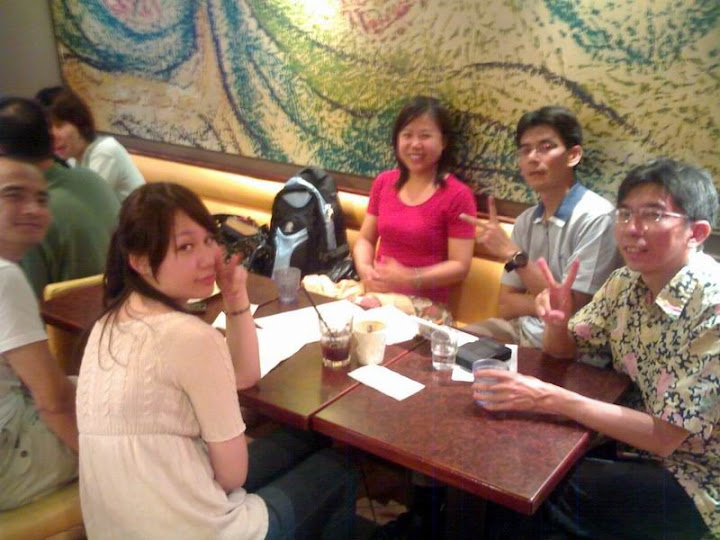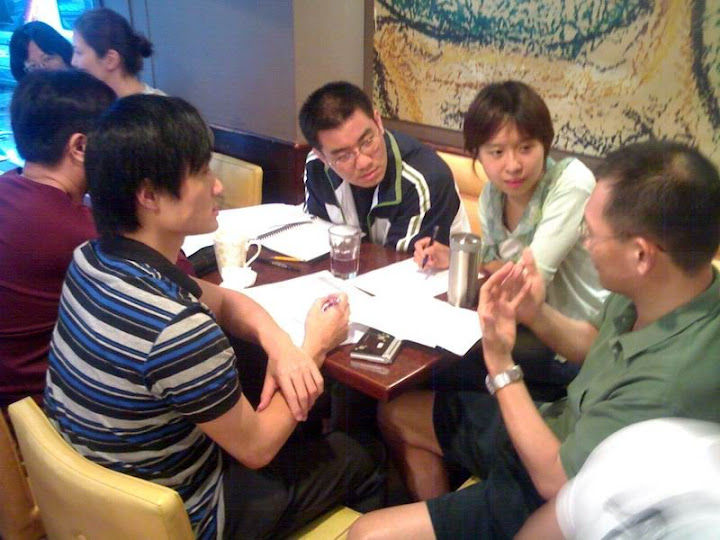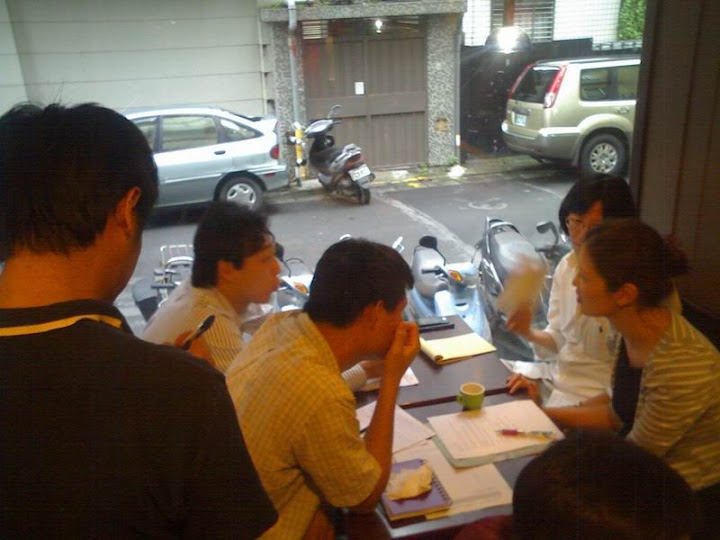The Influence of Family Education
Substantial research supports the importance of family involvement in the elementary school years, and
a growing body of intervention evaluations demonstrates that family involvement can be strengthened
with positive results for children and their school success. To achieve these results, it is necessary
to match the child's developmental needs, the parent's attitudes and practices, and the school's
expectations and support of family involvement. Three family involvement processes for creating this
match emerge from the evidence base (see Figure 1):
‧ Parenting consists of the attitudes, values, and practices of parents in raising young children.
‧ Home–school relationships are the formal and informal connections between the family and
educational setting.
‧ Responsibility for learning is the aspect of parenting that places emphasis on activities in the
home and community that promote learning skills in the young child.
While the three processes described above provide a framework in which to organize the research,
readers must keep in mind that family involvement includes other processes beyond those described in
this series of briefs. For example, parent leadership, community organizing, and participation in
school decision making are not represented in this review. This is not because these forms of family
involvement lack value. Instead, their omission reflects the shortage of empirical research linking
these activities to children's outcomes. This review focuses deliberately on those processes that have
been shown empirically to relate to or cause student academic and social growth. As such, the studies
included had research designs that allowed for the testing of relationships between family involvement
processes and children's outcomes. The sources of this research brief come primarily from the field of
human development and psychology. A detailed explanation of the methods for this brief can be found in
Appendix I.
1.1 Parenting Children of Elementary School Age
The quality of the parent–child relationship influences how well children do in school. Child
development experts characterize a positive parent–child relationship in terms of support, whereby the
parent conveys warmth, sensitivity, and encouragement; appropriate instruction based on the child's
development and characteristics; and respect for the child's growing autonomy.1 Through interactions
with parents and other caregivers, children learn to develop social skills that they transfer from the
home to the school context. One study of kindergarteners found that a positive mother–child
interaction—one that is sensitive and elicits prosocial behavior-is associated with children's social
and academic performance in middle school.
Parents impart the self-regulation skills that have a lasting effect on their children's ability to
relate positively with their peers and to attend to and participate in class activities. In a
different study with ethnically diverse kindergartners and their mothers from low-income families,
child outcomes associated with family educational involvement in the school varied based on the warm
and positive nature of the mother–child relationship.3 Higher maternal school involvement was related
to higher mathematics and literacy achievement when the mother and child shared a warm, positive
relationship.
Furthermore, parents who explain educational tasks at an age-appropriate level and in an emotionally
supportive manner have children who are more likely to participate in class, seek help from the
teacher when needed, and monitor their own work.4 When parents dedicate time, offer praise, show
affection, and develop close relationships with their children of varying school ages, their children
are less likely to require discipline at school or treatment for social or emotional problems.5 Among
low-income African Americans, one study reported that children were better able to conduct themselves
appropriately in the classroom, interact with peers, and anticipate the consequences of their behavior
when they had supportive and involved mothers.6When some of these students were placed in unruly and
disorganized classroom environments, they demonstrated more self-regulation than children whose
parents did not provide such supportive and involved relationships at home. In this way, parent
involvement helps children navigate challenging classroom environments.
Moreover, the linkages between parents and their communities have a bearing on parenting practices.
Parents' social networks of families, friends, and neighbors can serve as a resource for children. A
study of urban first through fourth graders with diverse ethnic backgrounds found that parents with
more varied (i.e., less kin-based) social networks received greater emotional support.9 They felt more
effective as parents, provided home environments with greater cognitive stimulation, and showed more
warmth and responsiveness to their children. These parenting characteristics were associated with
children who had fewer behavior problems and better social skills. In addition, children performed
better in school when their parents had varied networks, in which adults exposed children to different
socially and cognitively stimulating activities.
1.2 Family Involvement and Complementary Learning
The conceptual framework guiding this research review is complementary learning. Harvard Family
Research Project (HFRP) believes that for children and youth to be successful from birth through
adolescence, there must be an array of linked learning supports around them. These learning supports
include families, early childhood programs, schools, out-of-school time programs and activities,
higher education, health and social service agencies, businesses, libraries, museums, and other
community-based institutions. HFRP calls this network of supports complementary learning.
Complementary learning is characterized by discrete linkages that work together to encourage
consistent learning and developmental outcomes for children. These linkages should be continuously in
place from birth through adolescence, but the composition and functions of the network will change
over time as children mature.
1.3 Family Involvement Makes a Difference
It is a series of research briefs that examines one set of complementary learning linkages: family
involvement in the home and school. As the second in the series, this brief focuses on the linkages
among families, elementary schools, and communities. The previous paper investigated family
involvement in early childhood settings, and the next will examine family involvement in adolescence.
Taken together, these briefs make the case that family involvement predicts academic achievement and
social development as children progress from early childhood programs through the K–12 schools and
into higher education.
In ancient Chinese society, only children of aristocracy and bureaucrats could receive education.
Majority of commoners had greater difficulty receiving education. Thus, "family education (家庭教育)"
began to play an important role. Many of the famous historical figures such as many parents sent
theirs child to learn English or another subjects that more important and famous courses grew up under
the education and strict 'teaching' of their parents or elderly, and studied hard in order to become
successful. For instance, this was well documented in the "story of Mencius and his mother moving
three times ". When he was young, his mother had to move three times because of the influence that
environment had on Mencius. First, they move from a tomb to a market, and then from a market to a
school nearby. It was only after moving to a school that Mencius started learning. Mencius later grew
up becoming a great philosopher
1.4 Maintaining high expectations:
As children progress through the elementary school years, the educational expectations that parents
hold for them become increasingly important. Individual and specific components of parental
involvement, such as reading to children and checking homework, are linked to educational outcomes;
yet, the general and more subtle expectations parents have for their children are even more
powerful.11Students' perceptions of their parents' values about achievement are strongly related to
motivation and competence. In other words, when students perceive that parents place an importance on
effort and academic success, students have higher academic competence and place a higher priority on
their academic ability, effort, and grades.
Question for Discussion
Session One
1. Does your parent have different treatment based on gender difference or birth order?
Do you think it influence you when you grow up?
2. Does your parent have certain expectation on you?
Based on that expectation how does your parent educate you?
3. The article mention "family involvement in the childhood setting and adolesence will
hightly related to academic achievement" Does your parent cares your academic status very much?
What are their reaction when they get your grade report? Does their attitude influence your
priority on academic development in your life?
Session Two
1. The article mention mention "The quality of the parent–child relationship influences
how well children do in school." Do you agree with it?
Do you think the relationship with your parent is close?
2. Does your parent often highly invlove decision making process in your life?
Do they often tell you what you should do or not?
3. If you become a parent one day, how do you educate your child?
Will it be the same with your parent or not?
********************************************************************************************************************************************
Agenda:
Session I:
2:15 ~ 2:30 Greeting / Ordering Beverage or Meal
2:30 ~ 2:40 Opening Remarks / New comers' Self-introduction / Grouping
2:40 ~ 3:20 First Group Discussion
3:20 ~ 3:35 First Summarization
3:35 ~ 3:40 Regrouping /Break
Session II:
3:40 ~ 3:45 Introduction
3:45 ~ 4:25 Second Group Discussion
4:25 ~ 4:40 2nd Summarization
4:40 ~ 4:50 Concluding Remarks / Announcements
********************************************************************************************************************************************
聚會日期:列於該貼文主題內
聚會時間:請準時 2:15 pm 到 ~ 約 5:00 pm 左右結束
星期六聚會地點:丹堤濟南店
地址、電話:台北市濟南路三段25號
捷運站:板南線 忠孝新生站 3 號出口
走法:出忠孝新生站 3 號出口後,沿著巷子(忠孝東路三段10巷)走約 2 分鐘,到了濟南路口,左轉走約 2 分鐘即可看到。
最低消費: 50 元
注意事項:
1. 文章是否需要列印請自行斟酌,但與會者請務必自行列印 Questions for discussion。
2. 與會者請先閱讀過文章,並仔細想過所有的問題,謝謝合作!
給新朋友的話:
1. 請事先準備2~3分鐘的英語自我介紹;會議結束前可能會請你發表1~2分鐘的感想。
2. 請事先閱讀文章以及主持人所提的討論問題,並事先寫下自己所欲發表意見的英文
3. 全程以英語進行,參加者應具備中等英語會話能力,對任一討論問題,能夠以5到10句英文表達個人見解。
4. 在正式加入之前,可以先來觀摩三次,觀摩者亦須參與討論。
5/29(Sat.) The Influence of Family Education (Host: Leon)
5/29(Sat.) The Influence of Family Education (Host: Leon)
When all you have is a hammer, every problem looks like a nail.
- sophie3333
- Member
- 文章: 41
- 註冊時間: 週日 5月 23, 2010 11:59 am
Re: 5/29(Sat.) The Influence of Family Education (Host: Leon)
Dear Leo,
This is a very broad topic. I just watched parent slap-slap a kid's face( he has no problem), because he cried and can stand still in the MRT. I guess, in the kid's mind, '"I do nothing wrong and What am I supposed to do but crying? " This is one of a typical way of how Asian teach kid.
However, so many kids' are brought up in reach but single family. While i taught(as far as I know) in 2008-2009, the family education and community educational system has lost few thing what it suppose to do doesn't it? On saturday, kids been look after by Grandparents or sitted in afterschool classroom.
What do you think of the rewarding, before you went to the college, does your parents reward you if you do the acdemic study well?
Sophie3333
This is a very broad topic. I just watched parent slap-slap a kid's face( he has no problem), because he cried and can stand still in the MRT. I guess, in the kid's mind, '"I do nothing wrong and What am I supposed to do but crying? " This is one of a typical way of how Asian teach kid.
However, so many kids' are brought up in reach but single family. While i taught(as far as I know) in 2008-2009, the family education and community educational system has lost few thing what it suppose to do doesn't it? On saturday, kids been look after by Grandparents or sitted in afterschool classroom.
What do you think of the rewarding, before you went to the college, does your parents reward you if you do the acdemic study well?
Sophie3333
Re: 5/29(Sat.) The Influence of Family Education (Host: Leon)
Hi sophie,sophie3333 寫:Dear Leo,
This is a very broad topic. I just watched parent slap-slap a kid's face( he has no problem), because he cried and can stand still in the MRT. I guess, in the kid's mind, '"I do nothing wrong and What am I supposed to do but crying? " This is one of a typical way of how Asian teach kid.
However, so many kids' are brought up in reach but single family. While i taught(as far as I know) in 2008-2009, the family education and community educational system has lost few thing what it suppose to do doesn't it? On saturday, kids been look after by Grandparents or sitted in afterschool classroom.
What do you think of the rewarding, before you went to the college, does your parents reward you if you do the acdemic study well?
Sophie3333
Welcome to join this club.
Reward and punishment are basic tools to shape people`s behavior.
Parents use them to shape their child to become their model in their mind.
This is also a good question that we can discuss it.
Hope see you on Sat.
When all you have is a hammer, every problem looks like a nail.
Re: 5/29(Sat.) The Influence of Family Education (Host: Leon)
Thanks for everyone to join this meeting!
Host: Leon
Participants:
Hans, Anita, David Jr., Debby, Tom, Chris * 2, Steve, Regina, Timothy, Gavin, Michael, Luis, Christine Wang, Kelly, Fred,
Iverson, Brain, Tammy, Julian, Sunny, Arther, Jean, Jenny
New comer: Chris
Total: 26
Host: Leon
Participants:
Hans, Anita, David Jr., Debby, Tom, Chris * 2, Steve, Regina, Timothy, Gavin, Michael, Luis, Christine Wang, Kelly, Fred,
Iverson, Brain, Tammy, Julian, Sunny, Arther, Jean, Jenny
New comer: Chris
Total: 26
When all you have is a hammer, every problem looks like a nail.





